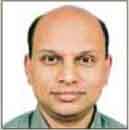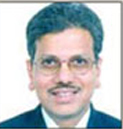Further focusing on the bright prospects in India for DSP technology and applications, Rajam divides all available jobs in this sector under three broad categories—DSP processor chip design, software development on DSP and hardware and system design using DSP.
If you like to ‘play’ with gadgets, you can get involved in designing them. A good student of mathematics can delve deep into the mathematics of signal processing. If, on the other hand, you are research-oriented, you can work to develop next-generation tools and products for automotive, health-care, communications, computing and defence electronics, algorithms, design techniques, production tools or software tools. There is in fact an option to explore special algorithms for encoding, compression or encryption. You can even participate in the ‘standards evolution process’ that could be used to design and develop future products.
[stextbox id=”info”]
“Though there are quite a few experienced DSP engineers commanding the top positions in the industry, the gap in supply and demand of skilled DSP staff shows no sign of easing, and with ever widening applications of DSP, there is no better time to embrace and master this technology.”
—C.P. Ravikumar, Texas Instruments
[/stextbox]
T [stextbox id=”info”]
hough there are quite a few experienced DSP engineers commanding the top positions in the industry, the gap in supply and demand of skilled DSP staff shows no sign of easing, and with ever widening applications of DSP, there is no better time to embrace and master this technology.
the industry, the gap in supply and demand of skilled DSP staff shows no sign of easing, and with ever widening applications of DSP, there is no better time to embrace and master this technology.
– C.P. RaviKumar, Texas Instruments
[/stextbox]
There is also room for traditional electronic design, synthesis and analytical skills. You can explore new ASIC or FPGA designs, VLSI tools and EDA tools. An interest in science can get you into next-generation applications in oil, space, under-sea exploration, whereas an inclination towards signal processing can get you into defense electronics.
How to get started?
It is hard to get excited about a field that you know little about. Equally, it is difficult to delve into it unless you know the purpose or the ‘big picture.’ Let’s have a look at the ‘big picture’ of DSP. Digital signal process manipulates real world signals—analogue voice, music, video, engine speed—to numerical values by using a digital signal processor. Analysis is performed in digital form because once a signal has been reduced to simple numbers, its components can be isolated, analysed and rearranged more easily than in the analogue form.
Eventually, when the DSP is done, the digital data is converted into analogue data with improved quality. For example, a digital signal processor can filter noise from a signal, remove interference, amplify some frequencies and suppress others, encrypt information, or analyse a complex waveform into its spectral components.
Digital signal processors are usually implemented in a single chip or even as part of an IC and embedded in every digital product. Today, there is in fact an overlap between the role of a traditional microprocessor and digital signal processors. In fact, the main differences lie in the internal chip architecture, with DSP particularly optimised for high-speed, high-accuracy manipulations.
Firms, during recruitment, look at a combination of consistent academic record, deep understanding of subject matter and soft skills. Though the Indian academia is churning thousands of engineers per year, there is a significant gap between the need of industry and what a fresher brings to the table. According to Ravi Kumar, of the (over) 450,000 technical graduates churned out every year from engineering institutes, only around 25 per cent are employable. Even these engineers are not really ‘industry ready.’
In order to reduce the gestation period of a fresher, there is a need for training and investment. They are not productive from day one. Stands to reason therefore that when you are looking at honing your skills for a job, you need to know what’s in demand. Let’s therefore focus on the industry expectations; on some of the basic things that your potential employer may be looking at, when he/she decides to interview you.
“Depending on whom you work for, you need different competencies. Signal processing requires a sound knowledge of both analogue and digital signal processing. There is maths, algorithms, implementation, tools, system design and so on,” says, Prof S. Sadgopan, founder director, IIT-Bangalore.
As an aspiring professional, you should start from the base level. Try to understand what makes DSP preferable to analogue signal processing and also its limitations. For developing better understanding, brush up the nitty-gritty of microcontrollers before jumping into DSP. Your key skill sets should include knowledge of microcontroller architecture, specially advanced ones like ARM, PPC, MIPS
[stextbox id=”info”]
There is definitely strong need for fresh engineering talent to come into the DSP industry. People aspiring to build a career in this field need to be strong in fundamental principles in one or more areas of circuit design, signal processing algorithms, embedded software development, application software development and system board design.
People aspiring to build a career in this field need to be strong in fundamental principles in one or more areas of circuit design, signal processing algorithms, embedded software development, application software development and system board design.
—Srini Rajam,Chairman and CEO, Ittiam
[/stextbox]







